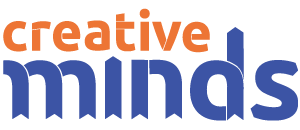Do you think it’s important to tell people that the art is made by someone with a learning disability? Or should it not actually matter?
Francis Manning – “If I make some work then the people I care about most are my friends and family – I don’t think about what other people think”
Todd Evershed- “If people don’t know, then they won’t know what’s going on they won’t know the story behind the work, and how much work we have put into raising money for it”
Chris Rider – “it’s not important – people can know but we don’t need to keep going on about it.”


Helen Hughes from The Grange, left this comment at the CReative Minds Conference in Brighton on the 10th March:
Why do we label art able and disabled? Why do we need to do this? It’s “art” no matter who has done it. Judge/Appreciate the result for what it is – it doesn’t matter who has done it!
Since this is the Blue Camel Club thread can I just say that whatever any of us say or do about who does or doesn’t have learning disabilities, the Club is straight up an absolute blast. To walk into the venue and feel the energy is uplifting to say the least. I think that the best art and music is from the heart of the musician and artist straight to the heart and soul of the audience whoever they both maybe, enlightening and uplifting both in the process and bypassing intellect and most everything else.It happens for me every time at the Blue Camel Club and every Thursday evening when I’m part of Unified Rhythm. IMHO it’s that process which is possibly the definition of creativity.The opportunity to be creative and experience that process should not be denied to anyone.I’m really looking forward to CM conference and will try to represent my band , Unified Rhythm as honestly as possible.I’m sure that someone at CM will help me progress these ideas and inspire me some more. Tim
I am pretty certain that when writing a review I would not make a big deal about, say, the performance of a learning disabled dancer AS such. I mean I’d say something about the performance or performer without qualifying him or her as learning disabled. With physical disabilities I might feel a need to describe physicality and how it affects movement…but again the idea would be to not make a big deal about it or be patronising or make special concessions. I just want to see performing that is honest, fully committed and true to itself.
Can other learning disabled people get into and around the creative spaces, be they dance or other form ? for the long run Can they feel able to make quality ideas in the Space working with venue artists and staff in fun and interesting ways .
Do the venues have staff who have had disability training?
Hi, this made me think about something, in the UK, the term ‘learning disability’ is something lots of people understand.. But outside of the UK, in America, Canada and Australia, they use something different.
Great Art should be something which can cross borders of all kinds – maybe it’s worth thinking about how ‘learning disabled artists’ present themselves on an international stage?
I think these comments from members of the Blue Camel Club committee are really interesting. Our perceptions of “quality” are so personal, aren’t they? Some of us are very interested in background stories, some people read reviews and articles which inform and enhance our appreciation of all forms of creative expression. But surely sometimes there is the greatest pleasure to be had in just seeing things for what they are? I am very interested to hear if there are any learning disabled artists or organisations out there who have experimented with the idea of presenting their work without giving the audience knowledge about them as learning disabled artists? Has it made a difference to how the work is seen? Interesting!
In the end I think work must speak for itself. And the wonderful work I have seen in Brighton over the last years did – music, film, dance, painting, theatre.
And maybe a question is whether the label ‘art by people with learning difficulties’ takes away the dignity of risk, which non disabled people take for granted – and learn from.
I am a Artist and trained youth worker first. My disability is part of my person. being creative and making some great art for self and others in fun and interesting art spaces and places. ..that me. moving forward and opening minds. There are some things I need support with, moving tables , making formal reports and booking art spaces .